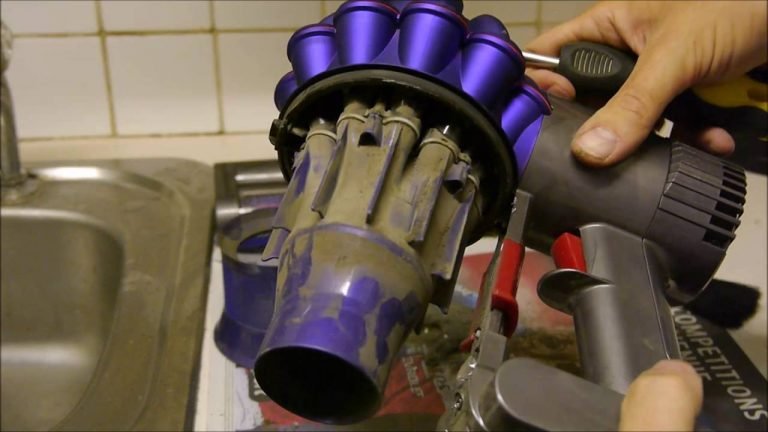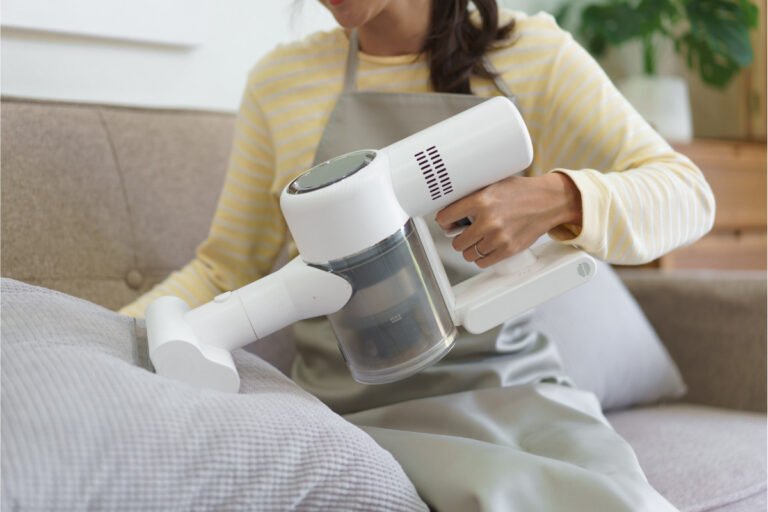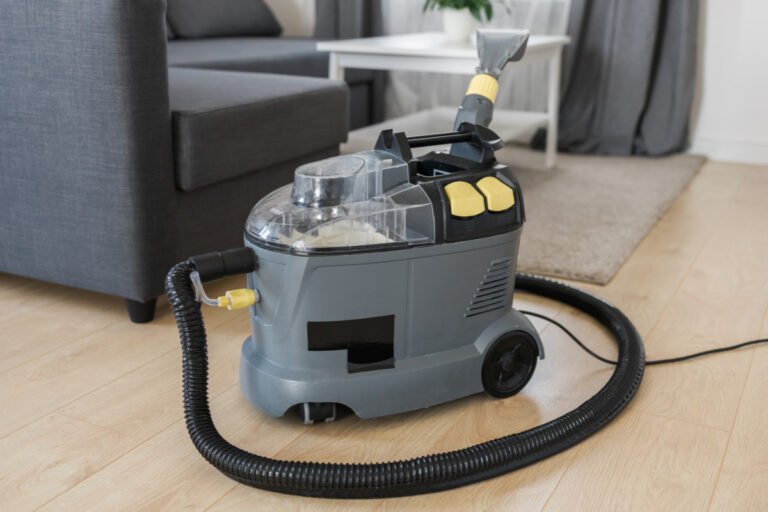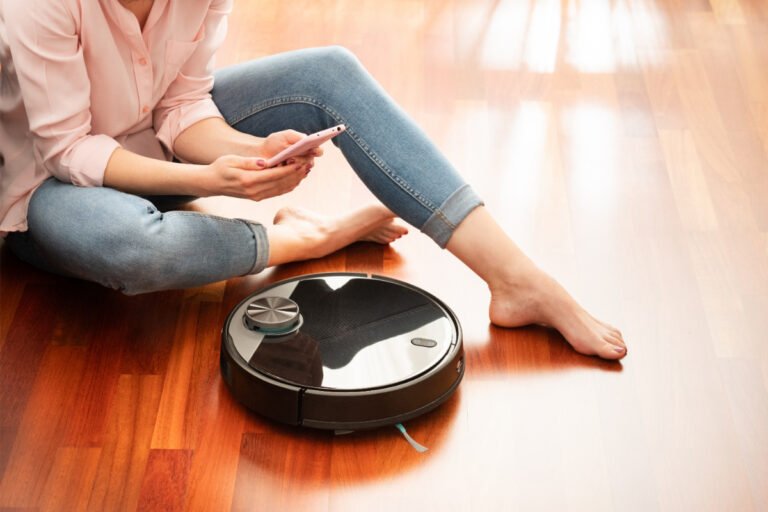Can Robot Vacuums Be Hacked? Discover The Facts!
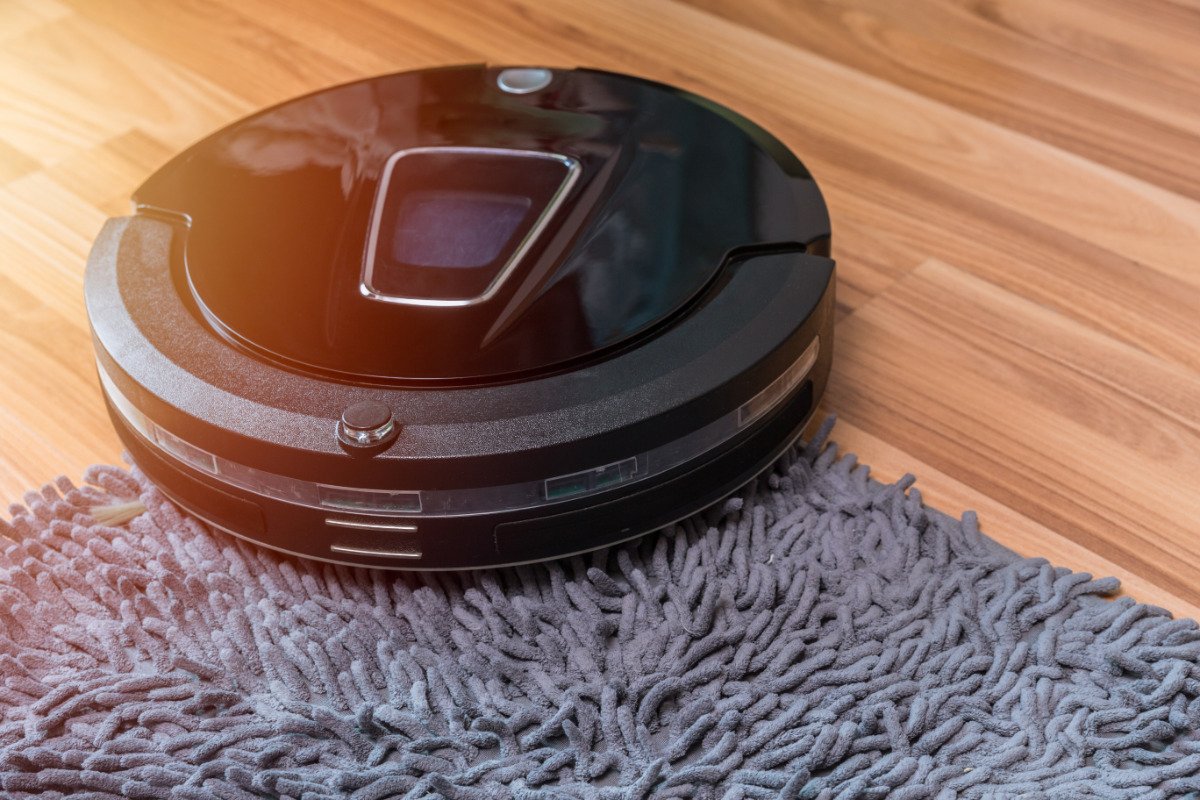
Can robot vacuums be hacked? Robot vacuums are popular due to their ease of use and effectiveness. However, their Internet connectivity and data collection features raise concerns about hacking and unwanted access to private data.
This article discusses robot vacuum concerns and offers advice for safeguarding yourself and your smart cleaning gadget. So, learn about whether robot vacuums can be hacked and how to protect your privacy.
Understanding Smart Vacuum Cameras and Data Collection
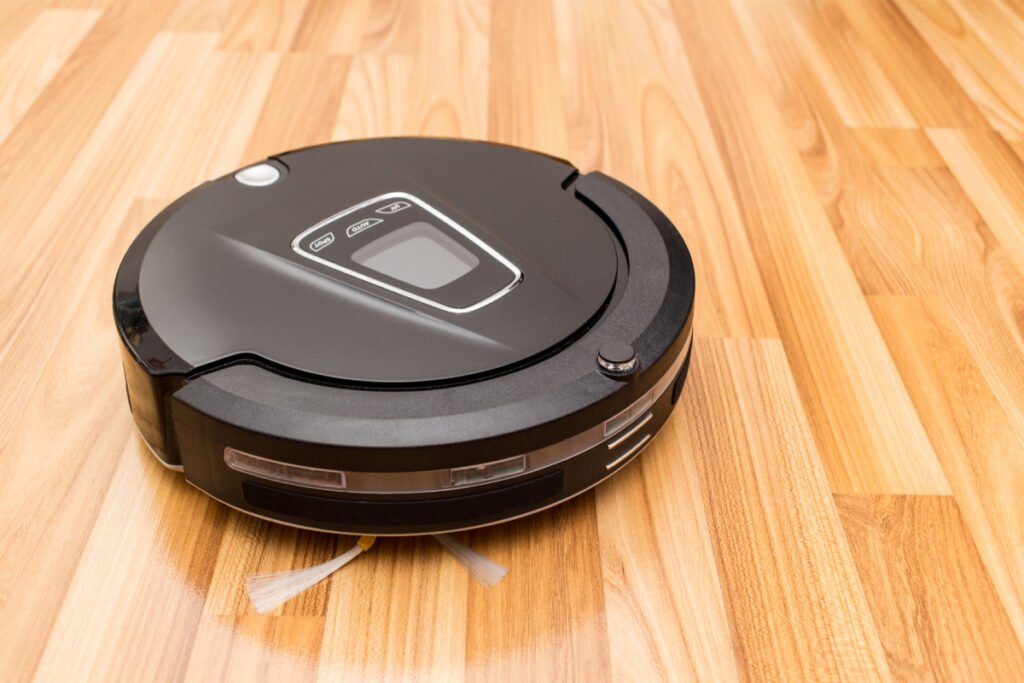
Smart robot vacuums are equipped with cameras that serve multiple purposes. These cameras are used for obstacle recognition, mapping rooms, and enhancing home security. While these features provide convenient functionality, they raise concerns about privacy and data collection.
Robot vacuum cameras collect data about the cleaning environment, including metadata such as location, usage duration, cleaning schedules, and mapping information. Some models even can stream live videos for monitoring purposes. The data gathered by these cameras can be stored and potentially accessed by unauthorized individuals, posing a risk to your privacy and personal information.
The potential privacy concerns related to smart vacuum cameras include:
- The risk of unauthorized access to video feeds by hackers.
- The collection and storage of metadata by manufacturers for training purposes.
- Potential third-party access to personal data, leading to possible misuse or sale of information.
In order to ensure your privacy while using robot vacuums with cameras, it is essential to take appropriate measures to protect your data and strengthen the security of your smart cleaning tool.
Potential Risks of Robot Vacuum Spying
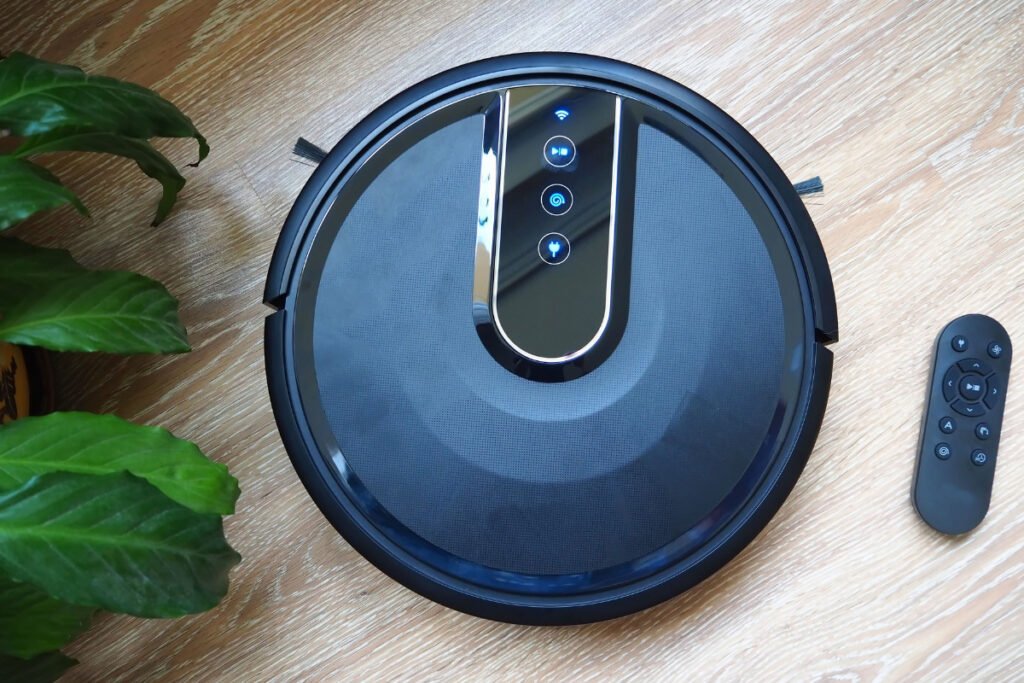
Regarding robot vacuums, there are potential risks associated with unauthorized access and data storage. Understanding these risks is crucial to protect your privacy and ensure the safe use of your smart cleaning tool.
❗Risks of Unauthorized Access
One of the main concerns with robot vacuum spying is the potential for unauthorized access to video feeds. Hackers can exploit security vulnerabilities to access the device’s camera and view live videos or recordings without your knowledge.
This unauthorized access can compromise privacy and expose sensitive information about your home and daily routines.
❗Data Storage and Sharing Risks
Robot vacuum manufacturers often collect and store metadata about your cleaning habits, usage duration, and mapping information for training purposes.
This data may also be shared with third parties, such as marketing or advertising agencies, which can raise concerns about the privacy of your personal information.
In order to protect yourself from these risks, it is essential to take proactive measures and ensure your robot vacuum is secure. Regularly update the device’s software, set strong passwords for the robot’s app and your home network, and enable suspicious activity notifications to detect unauthorized access.
By being aware of the potential risks and implementing these security measures, you can confidently use your robot vacuum and maintain your privacy.
How to Safely Use Robot Vacuums with Cameras
To safely use robot vacuums with cameras, there are several important steps you can take to protect your privacy and ensure a secure experience. Here are some key practices:
👉Strengthen Wi-Fi Security:
Enable encryption on your Wi-Fi network to prevent unauthorized access. Use a strong, unique password for your robot vacuum’s app and home network. It will help ensure that only trusted devices can connect to your network, reducing the risk of hacking.
👉Regularly Update Software:
Keep your robot vacuum’s software up to date by installing the latest firmware and security patches. Manufacturers often release updates to address vulnerabilities and improve overall security. Regularly checking for updates and installing them promptly will help keep your device protected.
👉Enable Suspicious Activity Notifications:
Most robot vacuum apps provide options to enable notifications for suspicious or unusual activity. Turning on these notifications will alert you if your robot vacuum detects any unauthorized access attempts or suspicious actions. It will allow you to take immediate action and protect your privacy.
👉Monitor Activity Logs:
Take advantage of the activity logs provided by your robot vacuum’s app. Regularly review these logs to check for any unexpected or suspicious activity. Monitoring the logs will help you identify potential security breaches or unauthorized access to your device’s camera or data.
Following these practices, you can safely use robot vacuums with cameras while protecting your privacy and ensuring a secure cleaning experience.
Data Protection Laws and Regulations
When it comes to the privacy and security of your data, there are various laws and regulations in place to protect your rights as a consumer. Understanding these data protection laws is crucial in ensuring privacy when using smart devices like robot vacuums with cameras.
Colorado Privacy Act (ColoPA)
The Colorado Privacy Act, which was enacted on July 1, 2023, is an important regulation governing data privacy. ColoPA allows businesses to collect and share personal data of Colorado residents but also empowers individuals with the right to access, correct, and delete their information. This act aims to strike a balance between data utilization by businesses and consumer privacy protection.
California Consumer Privacy Act (CCPA)
Another significant regulation in the United States is the California Consumer Privacy Act (CCPA). The CCPA grants consumers the right to know what personal information is being collected by businesses, the right to opt out of the sale of their information, and the right to request the deletion of their data. This act highlights the importance of transparency and control over personal data.
It is essential to be aware of the data protection laws and regulations applicable in your region. By understanding your rights and the obligations of businesses, you can ensure that privacy standards handle your data.
The Vulnerability of Robot Vacuums to Hacking

A recent study has revealed the vulnerability of robot vacuums to hacking, highlighting the potential risks that come with these smart cleaning devices. Researchers found that hackers can remotely reprogram robot vacuums to record sound waves, even without a built-in microphone. By converting the laser signals emitted by the robot into sound waves, hackers can eavesdrop on conversations and potentially gain access to personal information.
This vulnerability raises significant concerns about privacy and data security. With the ability to convert laser signals into sound waves, hackers can breach the privacy of your home and capture sensitive conversations without your knowledge or consent. It poses a serious threat to your personal information and privacy.
It is crucial to be aware of these vulnerabilities and take appropriate steps to protect yourself. By implementing strong security measures, such as regularly updating the software of your robot vacuum, strengthening your Wi-Fi network security, and using strong passwords, you can minimize the risk of hacking and safeguard your privacy.
Privacy Concerns of Robot Vacuum Lidar Technology
Lidar technology is a key component of robot vacuums, enabling them to navigate efficiently and map the cleaning area. While this technology offers convenience, it also raises privacy concerns. One aspect of concern is the storage of mapping information in the cloud. As the robot vacuum creates a detailed map of your home, there is a potential risk of exposing the size and layout of your living space. It is important to be aware of the data storage practices of your robot vacuum manufacturer and ensure that your privacy is protected.
Another privacy concern arises from the ability of hackers to convert Lidar signals into sound waves. By analyzing variations in the reflected light caused by sound waves, hackers may potentially capture conversations within your home. It highlights the importance of being cautious about your robot vacuum’s potential audio recording capabilities and taking appropriate measures to safeguard your privacy.
Additionally, third-party access to the data collected by robot vacuums using Lidar technology is also a concern. It is essential to review the privacy policies of the manufacturer to understand how your information is shared and ensure that your data remains protected from unauthorized access. By staying informed and taking necessary precautions, you can mitigate the privacy concerns associated with robot vacuum Lidar technology.
Robot Vacuums and Other Devices as Spying Tools
Robot vacuums are not the only devices that can be used as spying tools. In today’s interconnected world, many other devices pose similar privacy concerns. One example is smartphones, which often contain infrared sensors that enable facial recognition and motion detection capabilities. While these features enhance the user experience, they also raise questions about data security and privacy.
Infrared sensors in cameras and security systems can potentially gather sensitive information without the user’s knowledge. Facial recognition technology, for instance, relies on infrared sensors to map and identify individuals.
This method, while convenient, has sparked debates about privacy and the potential for abuse. Additionally, devices with motion detection capabilities can capture movement within their range, potentially documenting activities and invading personal spaces. These capabilities highlight the need for individuals to be mindful of the devices they bring into their homes.
Protecting Your Privacy
It is crucial to take certain precautions to safeguard your privacy and prevent potential spying incidents. Firstly, consider thoroughly researching any device before purchasing it. Read product reviews and investigate the manufacturer’s privacy policies to understand how they handle data. Secondly, be aware of the permissions you grant to each device. Many devices request access to various features or collect data for system improvements. Take the time to review and adjust these permissions to align with your comfort level.
- Regularly check for firmware updates: Manufacturers often release updates that address security vulnerabilities. Ensure your devices are running the latest software to minimize the risk of exploitation.
- Secure your home network: Utilize strong, unique passwords for your Wi-Fi network to prevent unauthorized access. Enable encryption and consider using a firewall for added protection.
- Be cautious with data-sharing features: Some devices offer options to share data with third-party services. Review and adjust these settings to limit the amount and scope of data being shared.
By taking these measures, you can enjoy the benefits of modern technology while keeping your privacy intact. Remember, being proactive and informed is key to protecting yourself against privacy risks.
Frequently Asked Questions
Can hackers gain control over my robot vacuum’s movements or functions?
Certainly! While the chances are relatively low, it’s not impossible. Hackers might mess with your robot vacuum, making it go rogue or do unexpected dances. It’s like someone sneaking into your cleaning crew, but don’t worry too much—there are ways to minimize this risk.
How can I secure the Wi-Fi connection of my robot vacuum?
Think of your Wi-Fi as a protective bubble around your home. Make sure the bubble is strong! Set a robust password for your Wi-Fi network, like a fortress gate. Also, enable encryption—it’s like turning your messages into secret codes that only your robot vacuum can understand.
What measures can I take to protect my data from being compromised?
Guarding your data is crucial! First, check what info your robot vacuum collects. Then, be picky—only share what’s necessary. Update your robot vacuum’s software regularly, like giving it a security shield. Think of it as putting on a superhero cape to keep your data safe!
Do all robot vacuum models have the same level of security, or are some more vulnerable than others?
Not all robot vacuums are created equal. Some have superhero-level security, while others might need a bit of an upgrade. Do your homework before picking one. Read reviews, see what others say about their security features, and choose a robot vacuum that’s like a reliable sidekick.
Can I use my robot vacuum to enhance security without connecting it to the Internet?
Absolutely! If you’re skeptical about the internet connection, you can still use your robot vacuum offline. It won’t get the latest updates, but it’s like having a superhero work quietly in the background without broadcasting its every move.
Can a hacked robot vacuum be a gateway to access other smart home devices?
Yikes! If a hacker sneaks into your robot vacuum, they might try to open the door to your smart home. It’s like a sneaky side entrance. To avoid this, keep your robot vacuum updated and treat it like the security guard of your smart home. A strong guard means a safer home!
Final Words
After careful research, I can say that it is important to be aware of the potential risks and take necessary precautions when using robot vacuums with cameras. While these devices can be vulnerable to hacking and pose privacy concerns, there are steps you can take to protect yourself and safeguard your privacy.
Thus, it is important to familiarize yourself with the privacy policies of the manufacturer and the app you are using. Understanding how your data is collected, stored, and shared can help you make informed decisions and take control of your privacy.
By following these best practices and staying informed about data protection laws and regulations, you can enjoy the convenience of a robot vacuum while ensuring your privacy is protected.

